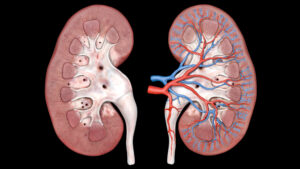Answering Common Questions about Diabetic Kidney Disease

Diabetic kidney disease occurs when high blood sugar levels damage a person’s kidneys and filtration mechanisms. As the kidneys filter less and less, the toxins and waste products accumulate in the blood, becoming very acidic. The high acidity levels can cause more damage to the kidneys and lead to serious kidney problems.
Today, we will discuss some frequently asked questions regarding diabetic kidney disease.
What Are the Signs and Symptoms of Diabetic Kidney Disease?
Diabetic kidney disease is a health condition that progresses slowly over time. As the sickness becomes more advanced, patients may experience certain signs and symptoms, including the following:
- High blood pressure
- Fatigue
- Nausea and vomiting
- Loss of appetite
- Pain in the back, legs, and abdomen
- Hematuria (blood in the urine)
- Nocturia (waking up at night to urinate)
- Swelling feet or legs
Who Can Get Diabetic Kidney Disease?
Some people are more likely to get diabetic kidney disease than others. For example, patients diagnosed with type 2 diabetes are at a greater risk of developing this disease despite undergoing diabetic management.
In addition, people diagnosed with insulin resistance, metabolic syndrome, high blood pressure, and high cholesterol are also at a greater risk of developing diabetic kidney disease.
How Do Diabetic People Know If Their Kidneys Are Affected?
Diabetic kidney disease is a silent disease, so those with diabetes may not tell during the early stages. However, as one’s condition worsens and the toxic wastes build up, patients may feel their stomachs turn frequently.
There are some cases when patients regularly throw up because of a stomach illness. Others also experience a loss of appetite and gain weight because of fluid retention. If left untreated, diabetic kidney disease may result in further complications, such as heart failure.
How Do Doctors Diagnose Diabetic Kidney Disease?
There are a few methods to diagnose diabetic kidney disease. First, patients will have their blood glucose levels checked regularly to monitor glycemic levels that exceed the normal range. In addition, the medical team will review the patient’s family history. If their parents have kidney problems, the patient could also be susceptible.
Finally, the doctor may use a urine albumin-to-creatinine ratio (UACR) test. This will determine if there is a high creatinine level in the urine, which could reflect the level of kidney failure present.
What Can a Person Do to Prevent Diabetic Kidney Disease?
There are many ways to prevent the onset of diabetic kidney disease. Patients with diabetes should regularly meet with their doctors and update their diabetic management programs. Additionally, everyone must monitor their blood glucose levels since high glucose levels can damage the kidneys over time.
Doctors also recommend patients have proper nutritional intake to prevent fluid retention and minimize the risk of urine formation. It will give patients the support they need to manage their diabetes and avoid complications.
Are There Any Treatment Options for Diabetic Kidney Disease?
Treating diabetic kidney disease is different from managing other types of kidney disease. The main goal of diabetic kidney disease treatment is to keep blood glucose levels within the normal range to prevent further kidney damage.
In some cases, a patient must undergo dialysis to keep their condition under control. Dialysis will remove waste products from the body, but patients may be limited on what they eat and drink during treatment. Worst comes to worst; patients may have to undergo kidney transplants.
Final Thoughts
Given the answers to the questions above, it’s safe to say that diabetic kidney disease can be a very challenging condition for diabetic patients. However, it is possible to prevent it from occurring. One only needs to follow their diabetic management program, visit the doctor regularly, and keep their blood glucose levels under control.
Morristown HC offers high-caliber diabetic management in Morristown. We offer quality patient-centered care recognized by the Atlantic Health System’s esteemed FICT program. Contact us today for a personal tour of the center!